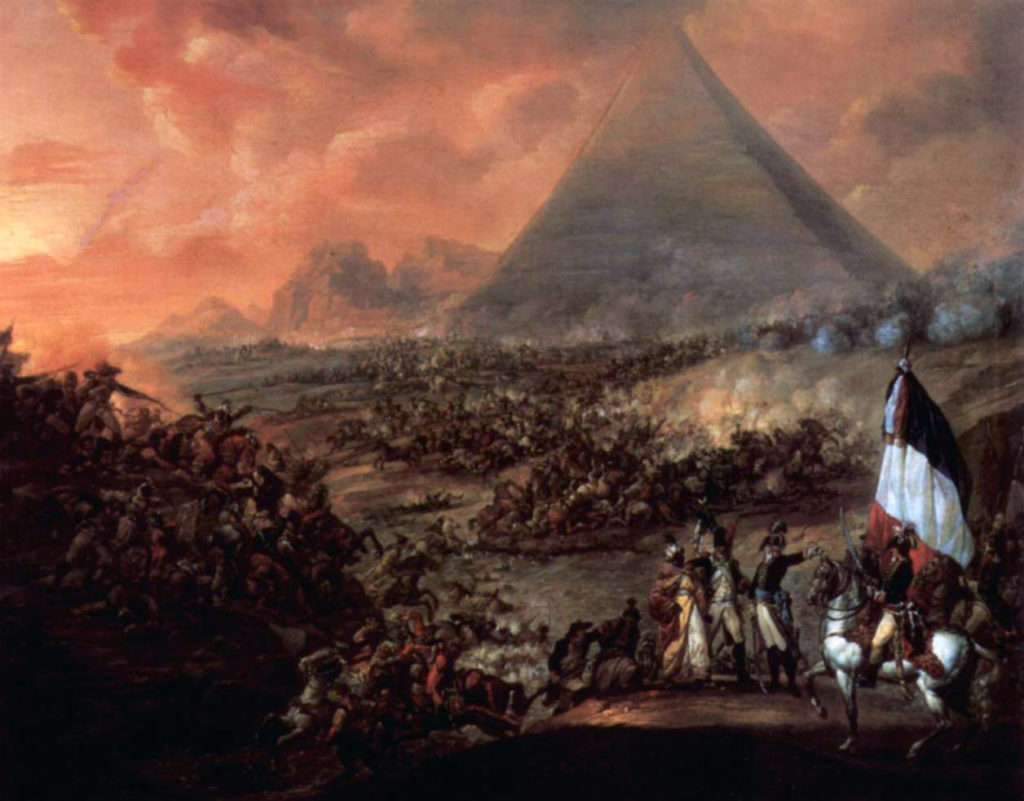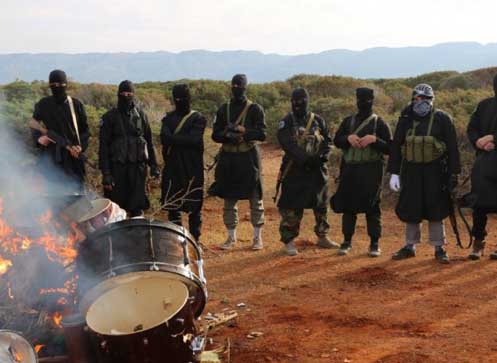
“Why did the Westerners advance and why did we fall behind? Where does the defect lie? How can we undertake reform and advance?” Questions like these have occupied thinkers for the whole of the 19th and 20th centuries, and up until the present-day.
ATTEMPTS TO DIAGNOSE the factors contributing to paralysis and obstacles to Arab reform date back more than two centuries. They began at the end of the 18th century on the heels of the cultural clash with a triumphant West that overran the region with its developed weaponry and modern technologies, with its sciences, expertise and advanced systems. Such things stunned the Arabs, shook them out of their slumbers and made their thinkers ask themselves these questions: “why did the Westerners advance and why did we fall behind? Where does the defect lie? How can we undertake reform and advance?” Questions like these have occupied thinkers for the whole of the 19th and 20th centuries, and up until the present-day. They have spurred them to establish a proper diagnosis for the state of Arab backwardness – the number of diagnoses is many and the solutions proffered vary according to the intellectual stripes of the various thinkers. The most conspicuous of these are the following:
1 – The religious solution: the earliest explanation by the Arabs for the backwardness of their societies was ‘their alienation from their faith and their failure to make the Sharīʽa dominant’. Religious preachers repeated the formula that ‘only what was considered good by its earlier members is of benefit to the latter-day members of the umma,’ that is, what the ‘pious ancestors’ practised. However, according to ‘Abd al-‘Azīz al-Khātir, any reform relevant to the first members of the umma is limited to that time and cannot be a reform project for every time and place. The contents of this propaganda came to be crystallised in the slogan ‘Islam is the solution’. But this is a somewhat loose slogan, since the Muslim Brotherhood solution is different from the Salafist solution, which in turn is different from the Sufi solution, while the Sunni solution is different from the Shīʽa solution. So where is the political program that can put this slogan into action?
2 – The democracy solution: its exponents see the cause of backwardness to lie in the deep rootedness of the culture of despotism in Arab societies and its ruling systems. This culture has established the rule of the autocrat and his domination of the masses. Therefore there is no solution other than in democracy and an alternative culture, in terms of values, education, behaviour and systems.
‘How can we reform the education system if the culture of the societies concerned are prohibitive and resistant to reform?’
3 – The scientific solution: Arab thinkers see that there is no way for Arabs to progress other than through science and technology, as took place in the West. However, scientific progress in the West was preceded by an intellectual enlightenment.
4 – The education solution: most Arab educationalists see the reform of the education system as the entry point to a more generalised reform. This is true but, according to Shamlān al-ʽĪsā, how can we reform the education system if the culture of the societies concerned are prohibitive and resistant to reform?
5 – The cultural solution: Ibrahim al-Buleihi [1] holds that the dilemma of the Arab backwardness is in the first place a ‘cultural’ one, and that cultural backwardness is the mother cause that feeds other forms of backwardness – political, scientific and religious. Children automatically absorb the culture of their societies from their earliest age and are programmed in them, and the mentality, behaviour and view of others take shape. Their mentality is dominated by first impressions, and these constitute serious obstacles to reform.
6 – The intellectual solution: the distinguished critic of the Arab mind, al-Jabrī, saw the Arab mentality as the principle reason for failure, in that it was an antiquarian mentality dominated by voices of the ancestors and afflicted by two maladies: the absence of a critical spirit and the loss of an historical perspective. Critics of al-Jabrī, however, see the use of the term ‘Arab mentality’ as an intellectual error in that the intellect is ‘a common human property’, a single phenomenon not a multiple one, and that there is no difference between the Arab mind and the Western mind. According to Descartes ‘of all things , -Jabthe intellect is that which has been most fairly apportioned amongst mankind’, the intellect is therefore one and the same whilst mentalities vary. These are a collection of conceptions and beliefs and opinions and behaviours that one particular society may share to the exclusion of another as regards their way of life and their way of thinking. Mentalities differ in step with the differences in societies and cultures and their ability to activate the mechanisms of reviewing and criticism. The multiplicity of mentalities is a feature that enriches societies and elevates them through a creative interaction. The Muslim Arab mentality is the product of a prevailing, inherited culture which, like other cultures in the world, has its positive and active elements as well as its negative and retarding elements.
What then are the negative and retarding elements in the Arab mentality? There are a number of fantasies acting like intellectual obstacles paralysing the Arab mentality, the most prominent of these being:
1 – The fantasy of a flourishing past: this is a tenacious fantasy; that the Arab mentality is still captive to a glorious past and we still refer back to our ancestors in search of their solutions to the problems of our contemporary societies. The agents of the past are the supreme authority for our societies in general, and we are still preoccupied with the past more than with the future. The Arabs’ past, as is the case with other nations, has things to admire and to condemn, but a selective approach to teaching these things brings to the fore only some illuminating moments in history while concealing a thousand years of darkness!
The dilemma of Arab backwardness is in the first place a ‘cultural’ one
2 – The fantasy of male supremacy: this is a widespread fantasy that has been in existence since the pre-Islamic era when womankind was incapable of conducting hit-and-run raids and carrying off booty. The teachings of Islam came to promote the equitable treatment of women, only to be immediately replaced and overcome by tradition. The view of society still maintains that women are emotional and incapable of conducting themselves without the guardianship of the male.
3 – The fantasy of a world conspiracy: this is a fantasy that occupies a broad space in the Arab mentality. More than any other people the Arabs are a constantly ‘targeted people’, a belief that extends deep into history with the blaming of the Jew Ibn Saba’ for the Great Sedition of old, and the belief in the truthfulness of the ‘Protocols of Zion’ and the (modern) Western conspiracy against us, while the Qur’ān indicates that the trials afflicting Muslims stem from their own hands, and is not because of America or the West or Mossad.
4 – The fantasy of processing truth and superiority: this is a predominating delusion held by all Islamic denominations in their mutual disputation as to what constitutes the ‘Saved Sect’ that will enter heaven. The doctrine of the ‘Saved Sect’ constitutes the basic foundation for the doctrine of exclusion practised by Islamic denominations and ruling authorities. It is the doctrine promoted today by the Islamists in Egypt.
5 – The fantasy of resurrecting the Islamic caliphate: this fantasy dominates all currents of political Islam engaged in the attempt at gaining power and it shapes their consciousness. It is based upon the background perception of Muslims that joins together all of the powers: religious, executive, legislative and juridical. There is no overturning of a court nor any restrictions placed upon power, and this phenomenon is represented by the Egyptian president Mursi’s announcement on the constitution.

Suggested Reading
6 – The fantasy of the demographic bomb: this is a delusion that is prevalent both among the masses and the religious and political elite. It holds that the multiple birth-rate constitutes the strongest arm with which to confront their enemies. Palestinians see procreation as the best weapon against Israel and Muslims in Europe see their increasing numbers and the decline in European birth-rate as acting in the interest of Islam, while Muslims generally see their numerical plurality is something which is praiseworthy and to be aspired to, one that guarantees them a majority. This is according to what the Organisation of the Islamic Conference published, that the number of Muslims for the year 2025 will surpass the number of adherents to other religions. Conversely, Muslim propagandists see in the policy of ‘birth control’ a form of Western conspiracy and a challenge to the Islamic formula against the West: ‘if you have nuclear bombs, we have population bombs!’, while Iranian President Ahmadinejad has threatened American interests with ‘ten thousand suicide bombers’.
How can we free ourselves from the domination of these fantasies over the Arab mind? By activating the mechanisms of criticism and reviewing, by raising the ceiling of freedom of expression, by individuals in society taking upon themselves their responsibilities in criticising their societies, changing their way of thinking and opening themselves up to other cultures so as to derive benefit from them.
[1] See Dr al-Buleihi’s article for Almuslih: Din and Dunya and the failure of Arab Enlightenment
Main picture: The shock of the new: Napoleon Bonaparte at the Pyramids, in a painting by François Louis Joseph Watteau, 1798-1799.


